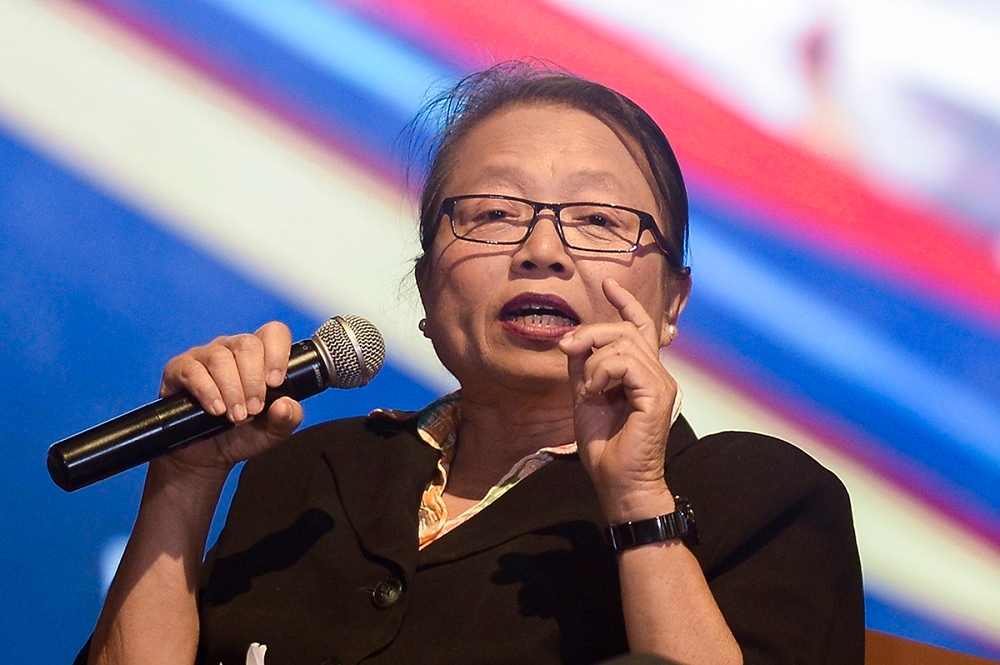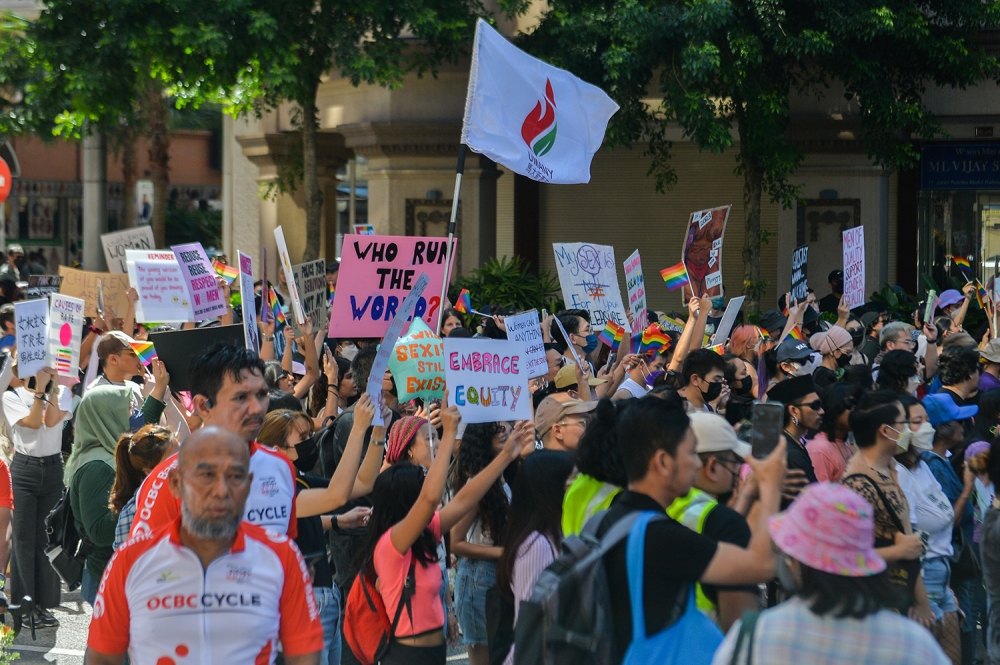KUALA LUMPUR, March 7 — A national initiative for gender equality and women’s empowerment is increasingly necessary to help overcome economic and social barriers that still hinder women from participating and contributing fully to Malaysia’s development, advocacy groups said ahead of the International Women’s Day tomorrow.
With the United Nations calling for countries to "invest in women: accelerate progress", they said women in Malaysia continue to grapple with income inequality and opportunities at work as well as greater risks of physical violence and vulnerability to poverty in their daily lives, despite the country’s apparent growth and progress.
“These entrenched barriers cannot be easily overcome, they must nevertheless be explicitly acknowledged. Continuously educate society through media, daily interaction,” senior fellow at the Malaysian Future Institute (Masa) Datuk Madeline Berma told Malay Mail.
“To support and implement a long-term national initiative to increase knowledge and awareness of gender equality and women empowerment and promote ways to break down barriers for women and girls.”
For instance, Madeline cited the imbalance between parental leave for women and men in the country, which she said had not even been available to fathers prior to 2022.
“The Employment (Amendment) Act 2022 states that the minimum period of paid maternity leave in Malaysia is 98 consecutive days. This is an increase from the previous 60 days, and it reflects a change from the initial proposal of 90 days.
“On the other hand, paternity leave is now seven days,” she said.

Madeline said that paternity leave might appear to be about giving fathers crucial time to bond with their new children, it was also vital in helping reduce workplace discrimination that women could face because of pregnancy and motherhood.
Citing Malaysia's Business and Economic Conditions survey, conducted by the Associated Chinese Chambers of Commerce and Industry of Malaysia (ACCCIM), she said employers were found to prefer hiring men for full-time roles or women on a part-time basis due to the length of maternity leave.
According to All Women’s Action Society (Awam) information and communications officer Amanda Shweeta Louis, improving women’s economic opportunities in the country required a comprehensive approach as this would involve addressing structural, social, and cultural barriers, involving both anti-discrimination laws to eliminate gender-based disparities in pay and opportunities, empowering women to actively contribute to economic growth by addressing structural inequalities like pay gaps and limited career advancement access, she said.
This could take the form of implementing equal wage policies and government policy changes and societal shifts.
“Moreover, structural changes often have a ripple effect on social and cultural barriers. When policies are put in place to promote gender equality in the workplace, it sends a message to society that women's contributions are valued and should be treated equally to men’s.
“This can lead to a shift in societal attitudes towards women's roles in the workforce, challenging traditional gender norms and stereotypes,” she told Malay Mail.
Since waiting for these to occur organically would take a long time, she said proactive government intervention is necessary to accelerate the process of change.
Asked about policies on sexual and reproductive health and rights (SRHR) and women’s participation in the workforce, Amanda said it all goes back to strengthening and investing more in primary healthcare responses to gender-based violence and domestic violence.
“This includes providing gender sensitisation training to hospital staff to ensure survivors of violence receive appropriate care and support.
“Furthermore, addressing maternal mortality rates (MMR) and reducing teenage pregnancies are essential components of SRHR policies and investing in comprehensive sexual education programmes and ensuring access to safe and affordable contraception can significantly reduce the MMR and teenage pregnancy rates,” she added.
She said that when women can make informed decisions about their reproductive health, it empowers them to pursue education and career paths which results in higher levels of female participation in the labour force.

Essentially, she said quality healthcare, including maternal and family planning services, helps women balance their reproductive duties with career goals
In accelerating investment in economically empowering women in Malaysia, Amanda said one can contribute time, resources, or expertise to civil society organisations (CSOs) or non-governmental organisations (NGOs) focused on women such as Awam itself.
“People can actively champion gender equality and women's rights in both their personal and professional circles to promote awareness.
“They may also engage with their local members of parliament and state legislative assembly members to stimulate discussions and advocate for the implementation of additional programs aimed at expediting investment in economically empowering women within their constituencies,” she added.
Amanda also said advocating for government-initiated gender-sensitisation programmes can further lead to substantial economic initiatives for women at the community level.
She also said economic empowerment initiatives that prioritise the needs and voices of marginalised and vulnerable groups of women in Malaysia can be done through data collection and targeted programmes, citing the Pangkalan Data Utama (Padu) as an example.
“By analysing demographic data and socio-economic indicators, the government can tailor economic empowerment programs to address the specific needs of these groups.
"This ensures that resources are allocated efficiently and effectively to uplift those who are most in need,” she said.
For this year, United Nations Women listed five areas for joint action to ensure women are not left behind — leading with how investing in women is a human rights imperative and cornerstone for building inclusive societies.
It also called for an end to poverty, the implementation of gender-responsive financing by nations, a shift to a green economy and care society, and support for feminist change-makers.



















